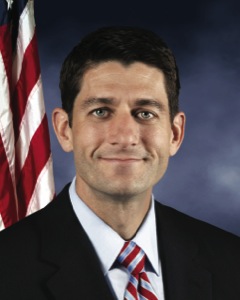
When Rep. Paul Ryan releases a new economic plan, I am typically left to wonder if he is on something. With his new plan for helping the poor, however, I think he might be onto something.
Not the idea that poor people need a nanny to help them pull it together, mind you. That’s demeaningly paternalistic, and blatantly hypocritical from the leader of a party that frequently rails against the “nanny state.” It also flies in the face of considerable data showing that what really lifts people out of poverty are jobs, the kind Ryan and his colleagues won’t help President Obama create.
Still, the idea of a single person to help beneficiaries access and optimize their benefits is a good one. The government safety net is regrettably porous compared to the bafflingly dense web of regulations that rule assistance programs. Having recently spent hours learning how to bill for Medicare services, I can’t imagine how the average American could understand government benefits.
For instance, if I don’t think someone will be in the hospital for over two midnights, I can assign them to “observation” status. To the patient, it seems for all the world that they have been admitted to the hospital: they are rolled from the emergency room to a bed on a floor, the nurses take care of them, the doctors see them. Fortunately, the care for observation and admitted patients is the same. To Medicare, however, observation is an “outpatient” status, meaning it gets paid through part B, not part A. If you or a family member has dealt with Medicare, you realize that means different copays and rules. One of them is that when part B is paying, they may expect you to take your own medications, and charge extra for pills provided by the hospital.
Expecting a sick person in the ER to inquire about their admission status so they know whether to bring their pills from home seems a bit unrealistic. Tax and nutrition benefits for the poor can be similarly user-unfriendly. What if beneficiaries had a specific person to call, one who knew the system from the inside? Not a nanny but a concierge, who could figure out how to keep the costs down for both the patient and the program.
Another role of the concierge would be to find ways to say “yes,” when assistance programs have so many ways to say “no.” Various levels of government can limit access to services, making it all but impossible to apply. They can make the enrollment criteria so strict that almost no one qualifies. They can boot people for small infractions, or not tell people how to fix those problems. As we learned with the VA, they can make secret waiting lists.
An advocate working for the people, not the program, would be a helpful check and provide some balance. So bring on that single point of contact, but make it a concierge who says “yes”, not a nanny who says “no.” With the possible exception of some of Mr. Ryan’s obstructionist colleagues, we’re all adults here.











